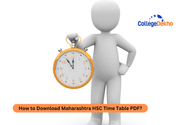
Never Miss an Exam Update
CBSE Class 12th History Chapter 9 - Colonialism and The Countryside Exploring Official Archives is included in the third part of the syllabus. The chapter consists of 15 periods and the weightage of the chapter will be around 5 marks. Around 4 chapters are included in the third theme of the syllabus. All of them combined will carry 25 marks on the board question paper. The theory paper in History will be conducted for 80 marks. The remaining 20 marks will be awarded based on the internal assessment. In Chapter 9, you will learn about how colonialism affected zamindars, peasants, and artisans, explain the revenue systems introduced by the British to Comprehend the problems and limits of using official sources for understanding the lives of the people, discuss the types of records and reports maintained by the rural society, and understand the divergent interests of the British in the society and on the Indians.
From the third part of the syllabus, 7 MCQs will be included in the question paper followed by two short answer type questions for 3 marks each, one long answer type question for 8 marks, and one source-based question for four marks each. The question paper will also consist of one map-based question for 5 marks at the end. No overall choices will be included in the question paper however internal choices will be included at the start of every section. You need to read the instructions printed at the top of the question paper carefully before starting. The duration of the question paper will be 3 hours. You will be provided 15 minutes at the start of the board exam to read the question paper however you are not allowed to write anything during the reading time.
Make sure to attempt the questions in pointers rather than writing long paragraphs to get good marks from the examiners. According to the date sheet released by the Central Board of Secondary Education, the CBSE Class 12 History exam will be held on Tuesday, April 1, 2025, from 10:30 AM to 1:30 PM. After completing the syllabus, you can attempt the CBSE Class 12th History Chapter 9 - Colonialism and The Countryside Exploring Official Archives Important Questions with Answers given below. This practice will help you to enhance your preparation for the board exams. Make sure to only attempt the questions after completing your syllabus.

































